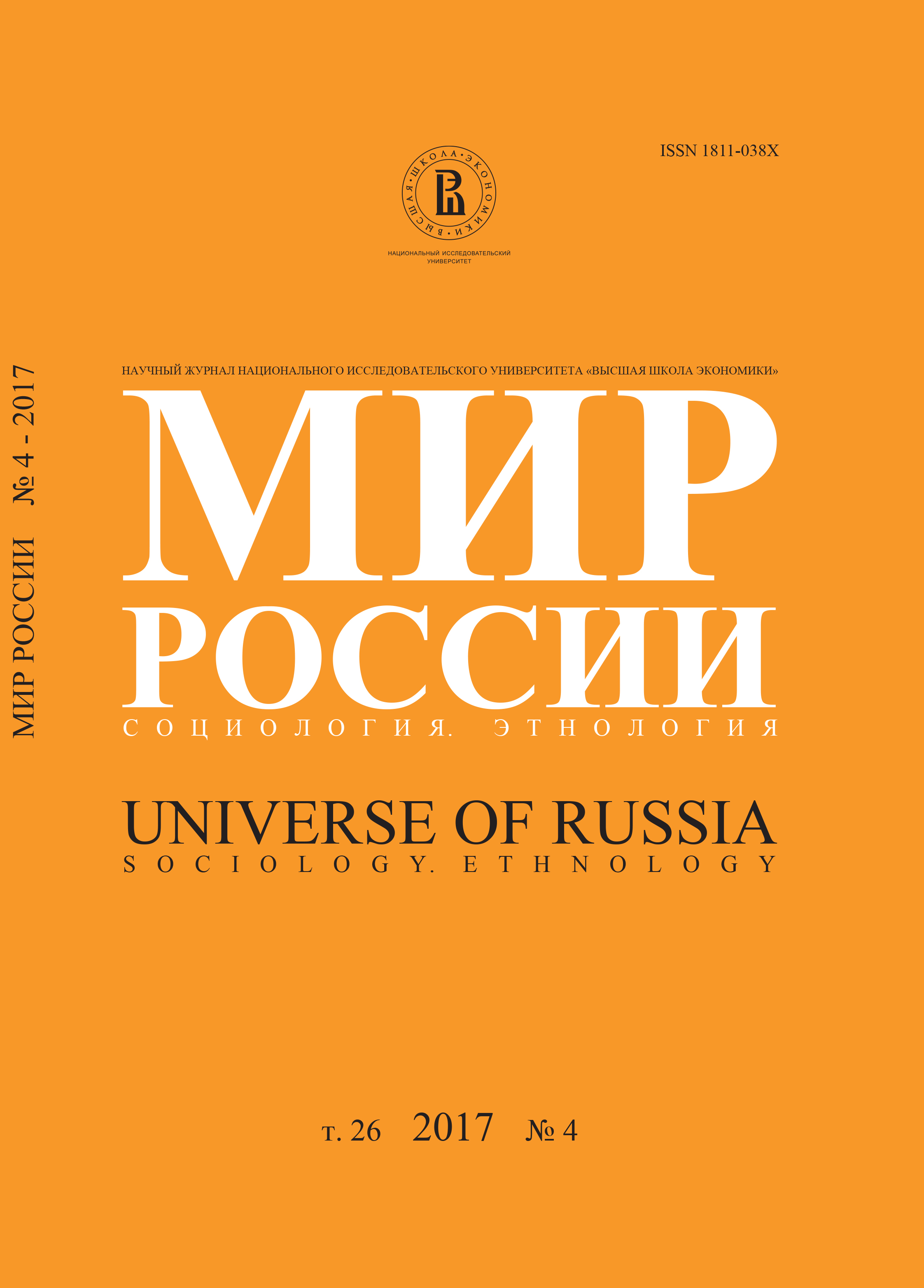"Soft Power" Strategies in Post-Soviet Central Asia: Russia versus the USA, China and India
Abstract
Denis Letnyakov – PhD in Politics, Researcher, Russian Presidential Academy of National Economy and Public Administration; Senior Research Fellow, Institute of Philosophy of Russian Academy of Sciences. Address: 82, Prospect Vernadskogo, Moscow, 119571, Russian Federation. E-mail: letnyakov@mail.ru
Natal’ya Emel’yanova – PhD in Politics, Research Fellow, Institute of Philosophy; Senior Lecturer, State Academic University for the Humanities. Address: 12/1, Goncharnaya St., Moscow, 109240, Russian Federation. E-mail: nata.emelyanova86@gmail.сom
Citation: Letnyakov D., Emel’yanova N. (2017) "Soft Power" Strategies in Post-Soviet Central Asia: Russia versus the USA, China and India. Mir Rossii, vol. 26, no 4, pp. 118–142 (in Russian). DOI: 10.17323/1811-038X-2017-26-4-118-142
This paper discusses Russia’s "soft power" strategies. More specifically, it answers the following questions: What are the strategies pursued by the institutions that were designed to promote Russian economic and cultural expansion (Rossotrudnichestvo, Russkij mir foundation, The Gorchakov Fund)? Does Russia have a competitive advantage over other countries in this respect? What soft power strategies does Russia need in different regions of the world? These questions are discussed in connection with Russia’s affairs in post-Soviet Central Asia. In addition, A comparative study of soft power politics implemented in Central Asia by the USA, China and India is conducted. The main conclusion is that Russia still has prominent soft power resources in the region. These include extensive use of Russian language especially in the cultural, educational and business spheres, a positive attitude in Central Asia both towards today’s Russia and towards the history of the Soviet period, the direction of migration flows from Central Asia region to Russia, the popularity of Russian mass culture (music, TV-shows) and Russian mass media. However, Russia’s soft power resources in the post-Soviet space are drawn largely from the legacy of the Soviet epoch. Currently Russia is facing increasingly strong competition in Central Asia, and its strategies of soft power have become less efficient. For instance, Rossotrudnichestvo and “Russkij mir” narrowly emphasize cooperation with Russian-speaking citizens in post-Soviet states ("compatriots abroad") rather than broader-scale cooperation. Further, their activities are limited to concerts, literary events and conferences that attract small audiences and have no significant impact on public opinion in post-Soviet states. The problem of the self-identification of contemporary Russia and the absence of a distinct image of itself also seriously limits Russia’s soft power. In order for Russia to remain an influential actor in Central Asia, its foreign policy has to be revised in the nearest future.






